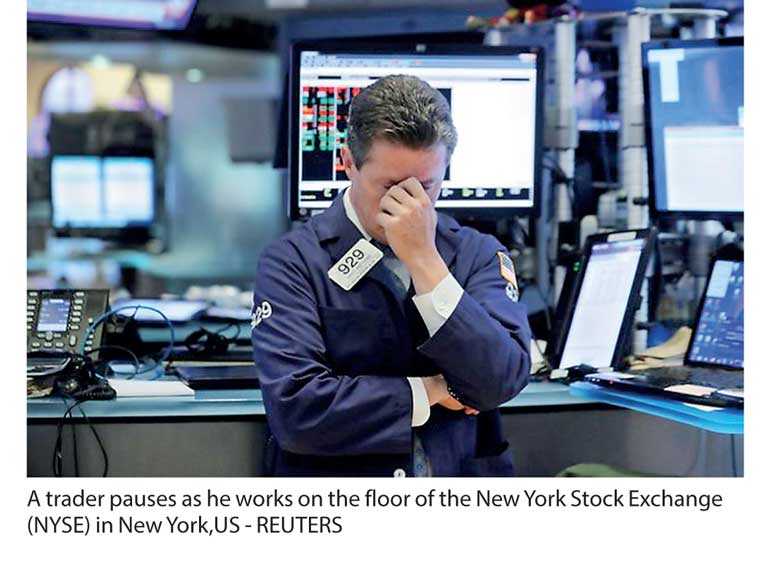Wednesday Feb 25, 2026
Wednesday Feb 25, 2026
Wednesday, 17 October 2018 00:00 - - {{hitsCtrl.values.hits}}
 LONDON (Reuters): Global investors have the most pessimistic outlook on the world economy since the 2008 financial crisis, according to Bank of America Merrill Lynch’s monthly survey, which also showed a sharp fall in US equity allocations.
LONDON (Reuters): Global investors have the most pessimistic outlook on the world economy since the 2008 financial crisis, according to Bank of America Merrill Lynch’s monthly survey, which also showed a sharp fall in US equity allocations.
The survey, released on Tuesday was conducted from 5-11 October and canvassed investors managing $ 646 billion. It showed investors remained overweight equities overall, though the 22% overweight was just marginally off the recent record low of 19%.
But in a sign of caution, they held cash at 5.1% — a net 36% overweight — and well above than the 4.5% 10-year average.
The poll showed that a net 38% of respondents expected the global economy to slow, the worst outlook on global growth since November 2008. A net 35% of participants identified trade war as the biggest risk.
Investors were also gloomy on corporate earnings, with a fifth of respondents expecting global profits to deteriorate in the coming year, BAML said, noting that in January a net 39% of investors had predicted an improvement. Focusing investors’ minds is the rise in US Treasury yields — 10-year yields hit seven-year highs recently — expectations of more policy tightening and signs the US economy and company earnings could slow from the sugar-rush provided by tax cuts.
All those fears were among factors which triggered a sudden selloff on Wall Street last week, putting the S&P500 on track for its biggest monthly loss since mid-2015 .SPX.
There are also concerns about the overwhelming popularity of big tech, with the BAML poll showing US and Chinese tech stocks remained the “most crowded” trade for the ninth consecutive month.
The poll showed a dramatic 17%age-point drop in US equity allocations to a net 4% overweight, with Japan ousting the United States as investors’ most favored market with an 18% overweight.
The decline in European equity holdings too continued, falling six percentage points in October to the lowest since December 2016.
Investors remain reluctant to give up on higher-risk assets however, holding on to an overall underweight position on bonds. “Investors are bearish on global growth but not bearish enough to signal anything but a short-term bounce in risk assets,” BAML chief investment strategist Michael Hartnett said.
The poll found also that the yield level at which investors would rotate from equities to bonds was seen at 3.7% on 10-year US Treasuries — the highest since March when the question was first asked.
Yields are currently around 3.17% US10YT=RR, almost 10 bps off recent highs.
In an interesting turnaround, a net 51% of poll participants named the dollar as overvalued, “notably against emerging market currencies which are seen as never having been more undervalued in survey history,” BAML said.